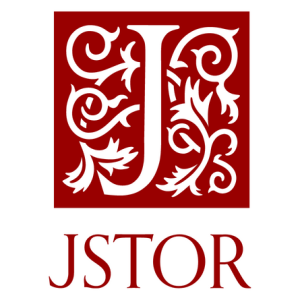 If you’ve researched a topic for a school paper, news article, or your own personal findings, you might be familiar with JSTOR. If you’re a superfan, you might just remember their discontinued and enviable baseball hat.
If you’ve researched a topic for a school paper, news article, or your own personal findings, you might be familiar with JSTOR. If you’re a superfan, you might just remember their discontinued and enviable baseball hat.
Nearly synonymous with knowledge and education, this online database boasts more than 2,800 scholarly journals from more than 57 countries, more than 100,000 eBooks, 2 million rights-cleared images and more. When performing research, JSTOR is practically a one-stop-shop!
But there’s more to JSTOR than meets the eye. Whether you’re a seasoned researcher or just getting started, there’s plenty to learn about this database and within it.
William G. Bowen created JSTOR in 1994 to help academic libraries make room for an ever-growing number of journals, literature, and books. Bowen’s solution may just have been shocking at the time: he would convert printed journals into an electronic form and store them in a centralized digital archive. In 1994, the 5.25-inch floppy disk held 160 KB. Today, you can purchase an external hard drive up to 16 TB! Certainly, Bowen’s idea for the time was nothing short of revolutionary.
As content has become digitized, JSTOR has also implemented more and more accessibility features including resizing text and spacing, contrasting color, offering alternative text, and utilizing text-to-speech tools. They also offer contact information if you find an accessibility issue or need content in an alternative format! Their commitment to information access remains uninhibited.
Did you know that JSTOR also offers the ability to create a free account? With this account, you can use a workspace, which enables researchers to save items to folders, annotate articles, and organize images as well as create PowerPoints. This way, you can take your research everywhere and never worry about being unable to find an article for the second time.
If you’re ready to use JSTOR but don’t know how to get started, just follow our suggestions below—or poke around and see what they have to offer!
First, you’ll want to enter your search term. You can narrow it down per its suggestions or do a general search. We'll search for Boston Public Library.

Wow! 263,000 results, all for the Boston Public Library? Let’s see what they are!

It looks like there’s plenty of images and, on the left-hand side, a plethora of academic and primary source content. Let’s see what Research Reports there are about us—it looks like there’s 788 of them!

Uh oh! We aren’t getting results that are only about us. These Research Reports include all reports with the words Boston, public, and library separately! Let’s do a search for “Boston Public Library” with quotation marks. Using quotation marks can help us narrow down our search if we’re using an exact phrase. Now, we should receive results specifically about the Boston Public Library.

Aha! We can tell now that we’re finding results specifically about us—check out our name in bold in the two Research Reports! These results tell us the type of content, the title, the journal it’s from, and when it was published. Let’s click on the first result.

Now we can use the PDF viewer to read the entire report. On the left-hand side, we can learn more about the report, see the table of contents for the entire journal, and see which pages the Boston Public Library is mentioned! Note that above the PDF viewer, you can also download this report using the red button. You can also save this report—if you have a free account—in addition to sharing it via Facebook, X (currently still listed as Twitter), and email. You can also cite it in MLA, Chicago, and APA style!

Note that you can also export these citations to your favorite citation manager—just be sure that if you use these citations that they’re up to date with the current standard. Purdue Owl is a great resource for verifying your citations are correct.
There are plenty more tools and advanced features for you to use while researching on JSTOR, but we hope that this blog gives you a good idea of how to start. If you run into a block with your research, you are more than welcome to contact your favorite local librarian or email ask@bpl.org for more assistance!
In the meantime, happy researching!


Add a comment to: Research 101: JSTOR